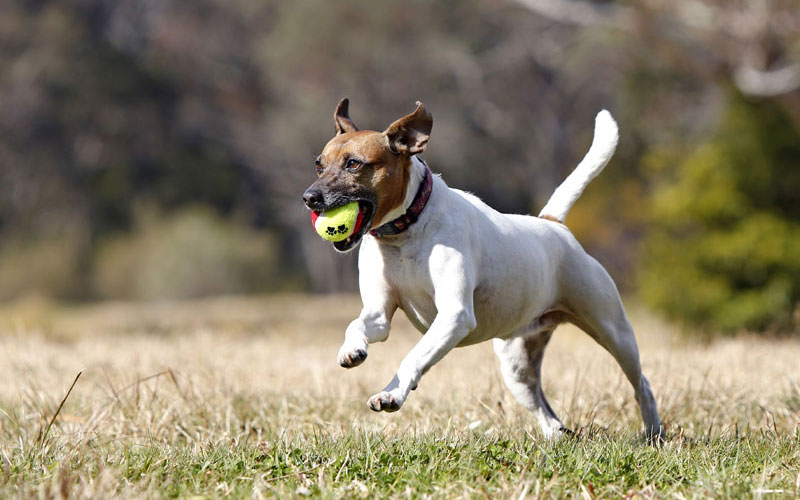Want to give your dog the best possible chance of a happy and healthy life? Follow these 10 terrific tips to keep your pooch in tip -top shape. Tim Falk reports.
- Make protection a priority
In Australia, puppies should be vaccinated for parvovirus, distemper and hepatitis as well as kennel cough. This usually involves a series of three vaccines, typically from the age of eight weeks old. It’s also important to make sure that your puppy is on heartworm prevention medication from twelve weeks old. As heartworm is spread by mosquitoes, it’s di!erent to other worms and not covered by normal worming tablets. - Get out and about
You want your pup to grow up into a loving, well-behaved and content animal later in life, but did you know that socialisation in the early days of your puppy’s life are crucial for ensuring that occurs? “Socialisation is critical for all animals because it allows them to become accustomed to other animals and people,” says Anne Fawcett, companion animal veterinarian with Sydney Animal Hospitals. “Pups start socialising when they are born, with their mother and littermates, and this process should continue. Once pups have their #rst vaccine they can enrol in puppy preschool where socialisation continues. Supervised dates in a safe, clean home environment with other vaccinated dogs are helpful.” - Definitely desex
Desexing dogs can have many benefits, not only for your pooch but also for the canine community as a whole as it means there will be fewer unwanted litters and fewer dogs ending up in animal shelters. In terms of health benefits, in females, desexing before the first heat can reduce the risk of mammary cancer, and eliminates the risk of ovarian and uterine cancers as well as infection of the uterus (pyometra).
“In males, desexing prevents testicular cancer and reduces the risk of some prostate diseases. It also prevents perineal hernias,” Dr Anne says. “Desexing males and females prevents roaming behaviour (seeking a mate) and going on heat (basically alerting all potential mates in the neighbourhood that your dog is ready for breeding, and potentially attracting some unsuitable types).”
- You are what you eat
Choosing the right food for your dog can be a confusing and even daunting process. There are so many foods available, so look for one that is designed for your dog’s life stage and size — for example, a puppy will need to be fed a diet that has been specifically formulated to meet the needs of puppies. Another important thing to look for on a pet food label are the words “complete and balanced”, as this means the food has been specially formulated to contain all the nutrients your dog needs. For more advice on what to feed your pooch, speak to your vet. - Excellence through exercise
Just like it does for us, regular exercise will keep your dog in great shape and together with a balanced diet, will reduce their risk of becoming overweight and developing medical conditions associated with obesity. “Dogs make great exercise partners for their pet parents and family,” says Bayer Technical services vet Dr Lisa Ahlstrom. “Exercise also allows your dog to burn off energy, meaning that their time at home can be spent a little more contently!” Just remember that the amount of exercise your dog wants or needs depends upon their breed, personality, age and health.
Woops! Did you want more healthy tips? This story was originally published in PETS issue 57. Click here to subscribe to our magazine.


Leave a Reply